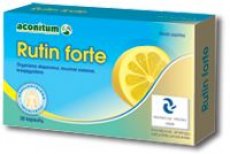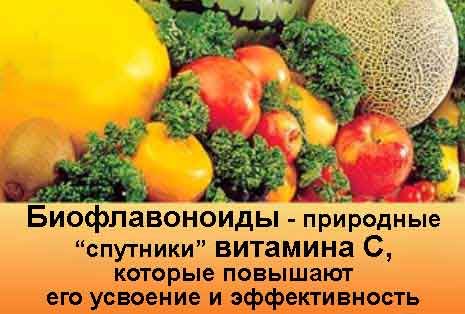Medical expert of the article
New publications
Preparations
Vitamin P - rutin
Last reviewed: 07.07.2025

All iLive content is medically reviewed or fact checked to ensure as much factual accuracy as possible.
We have strict sourcing guidelines and only link to reputable media sites, academic research institutions and, whenever possible, medically peer reviewed studies. Note that the numbers in parentheses ([1], [2], etc.) are clickable links to these studies.
If you feel that any of our content is inaccurate, out-of-date, or otherwise questionable, please select it and press Ctrl + Enter.

Vitamin P or rutin is a flavonoid that does a lot for our body. It is more correct to call vitamin P, or rutin, not a flavonoid, but a bioflavonoid, a substance that slows down the aging process. Rutin can improve the permeability of capillaries, prevent their fragility. It can also help people be healthy and active. Rutin is found in a number of foods and herbs, but its effect on the body is ambiguous.

What is rutin?
Rutin is a bioflavonoid, a substance that gives plants their color and may play a protective role. Pure rutin is yellow or yellow-green in nature, and when viewed under a microscope, it looks like needle-shaped crystals. Rutin consists of quercetin and a disaccharide (rhamnose and glucose).
During the digestive process, most rutin is metabolized into a special substance - quercetin, which is also a flavonoid, plant pigment and antioxidant.
Other names for rutin
Vitamin P, bioflavonoids, bioflavonoid complex, bioflavonoid concentrate, bioflavonoid extract
Sources of rutin in nature
Rutin is found in many plants, fruits, and vegetables. The richest source of rutin is buckwheat. Rutin is also found in citrus fruits, black tea, and apple peel. Grapes and plums also contain vitamin P. When it comes to green vegetables, choose spinach. It contains a number of isoflavonoids, including vitamin P.
Daily norm of rutin
It is from 25 to 50 milligrams per day. For women, on average, from 20 mg, and for men, from 28 mg.
 [ 1 ], [ 2 ], [ 3 ], [ 4 ], [ 5 ], [ 6 ]
[ 1 ], [ 2 ], [ 3 ], [ 4 ], [ 5 ], [ 6 ]
Including vitamin P in the diet
Including sources of vitamin P in your daily diet is not difficult. Citrus fruits, as well as fruit and vegetable juices, are excellent sources of rutin. Using fruits in baking will not destroy the vitamins they contain.
You can make jelly from blackcurrants or other berries, make pancakes from buckwheat flour and come up with other delicious ways to add vitamin P to your diet.
Properties of rutin (vitamin P)
Found in various citrus fruits, vitamin P plays a major role in providing our body with vitamin C. Its properties affect the condition of our blood and help our red blood cells - platelets - not stick together. Vitamin P also promotes the health of capillaries and helps them work, helping to prevent capillary bleeding.
It is also great for those who are prone to bleeding gums, as this vitamin helps prevent and heal weak blood vessels located in the gums.
For those who often deal with colds, vitamin P can be a great help. It strengthens the immune system, this vitamin is necessary for strengthening the body's natural defense against viruses and infections.
Vitamin P is also a natural anti-inflammatory and diuretic. This vitamin can help overcome serious diseases - hypertension, allergies, the occurrence of wounds and ulcers.
Busters of routine
There are several substances that can destroy vitamin P in the body. Among the most common destroyers are tobacco smoking and alcohol consumption. Aspirin and a number of over-the-counter painkillers can also destroy rutin in the body's system, and the enemies of rutin are antibiotics and cortisone.
To counteract these negative effects, you can make lifestyle changes (stop smoking and drinking alcohol) and increase the amount of citrus fruits in your diet.
Signs of rutin deficiency
- Rapid fatigue
- Hemorrhage in the retina
- Irritability
- Pain in the legs
- Shoulder pain
- Acne
- Bleeding gums
Signs of excess rutin
There are no serious health risks associated with excess rutin, as excess rutin is quickly excreted from the body through waste products. However, rutin supplements may cause some side effects, including headaches, rashes, and upset stomach.
When is rutin safe?
Rutin is generally considered safe when consumed in reasonable amounts from foods such as citrus fruits, onions, and apples.
Today, science knows little about the safety of long-term use of rutin and its supplements. However, we would like to introduce you to experiments that have shown the effectiveness of rutin in the fight against serious diseases.
Rutin and arthritis
Rutin shows promise in treating arthritis, according to a 2008 study of control rats with arthritis. In the rats, the researchers found that rutoside helped fight inflammation and reduced clinical signs of arthritis.
Rutin and Inflammatory Bowel Disease
Preliminary studies suggest that rutin may help treat inflammatory bowel diseases (such as colitis). A study published by the U.S. Institute of Life Sciences reported that tests on rats showed good results from taking rutin. It was found to help reduce damage to colon tissue caused by colitis.
Rutin and blood clots
The number one killer is thrombosis (blood clots), which block blood flow to the heart or brain. New research has found the effectiveness of a non-drug approach to preventing these blood clots from forming. This strategy involves the use of rutin.
Blood clots under appropriate conditions are life-threatening, and therefore the need for safe, effective preventive and therapeutic approaches is of great medical interest.
In recent studies, scientists have focused on rutin as a substance that can fight many diseases. In particular, they have singled out rutin from more than 5,000 compounds as the most powerful substance for fighting thrombosis. After extensive research and testing, the researchers found that “Rutin was the most potent antithrombotic compound we have ever tested,” explained Robert Flaumenhaft, senior author of the study and an associate professor of medicine at Harvard Medical School.
Research: Rutin for Healthy Veins
Rutin may be helpful for people with chronic venous insufficiency, according to a study published in the journal Minerva Cardioangiologica in 2001. Chronic venous insufficiency is a condition in which the veins do not effectively return blood from the legs to the heart. It causes health problems such as varicose veins, swollen ankles, and nighttime leg cramps.
For the study, 30 patients with chronic venous insufficiency were treated with a combination of rutin, alpha-tocopherol (a form of vitamin E), sweet clover, and centella asiatica, which is a member of the parsley family. After 30 days of treatment, participants in the control group showed significant improvement in symptoms (such as swelling and cramps). However, it is unknown whether rutin would be useful in treating chronic venous insufficiency if taken without these supplements.
Rutin and Varicose Veins During Pregnancy
Rutoside (a compound found in rutin) may help treat varicose veins in pregnant women, according to a 2007 report published in the Cochrane Database of Systematic Reviews. In an analysis of three previously published clinical trials (involving a total of 159 women), researchers found that rutoside relieved symptoms of varicose veins in late pregnancy. However, the review authors noted that there was insufficient data to assess the safety of rutoside use during pregnancy.
How to use rutin for medicinal purposes?
Due to the lack of scientific research, it is too early to recommend rutin and rutin supplements for the treatment of dangerous health conditions. If you are considering using rutin to treat chronic diseases, consult your doctor first. It is important to note that self-treatment of chronic diseases with rutin and their prevention without the supervision of a doctor may lead to serious health consequences.
Attention!
To simplify the perception of information, this instruction for use of the drug "Vitamin P - rutin" translated and presented in a special form on the basis of the official instructions for medical use of the drug. Before use read the annotation that came directly to medicines.
Description provided for informational purposes and is not a guide to self-healing. The need for this drug, the purpose of the treatment regimen, methods and dose of the drug is determined solely by the attending physician. Self-medication is dangerous for your health.

